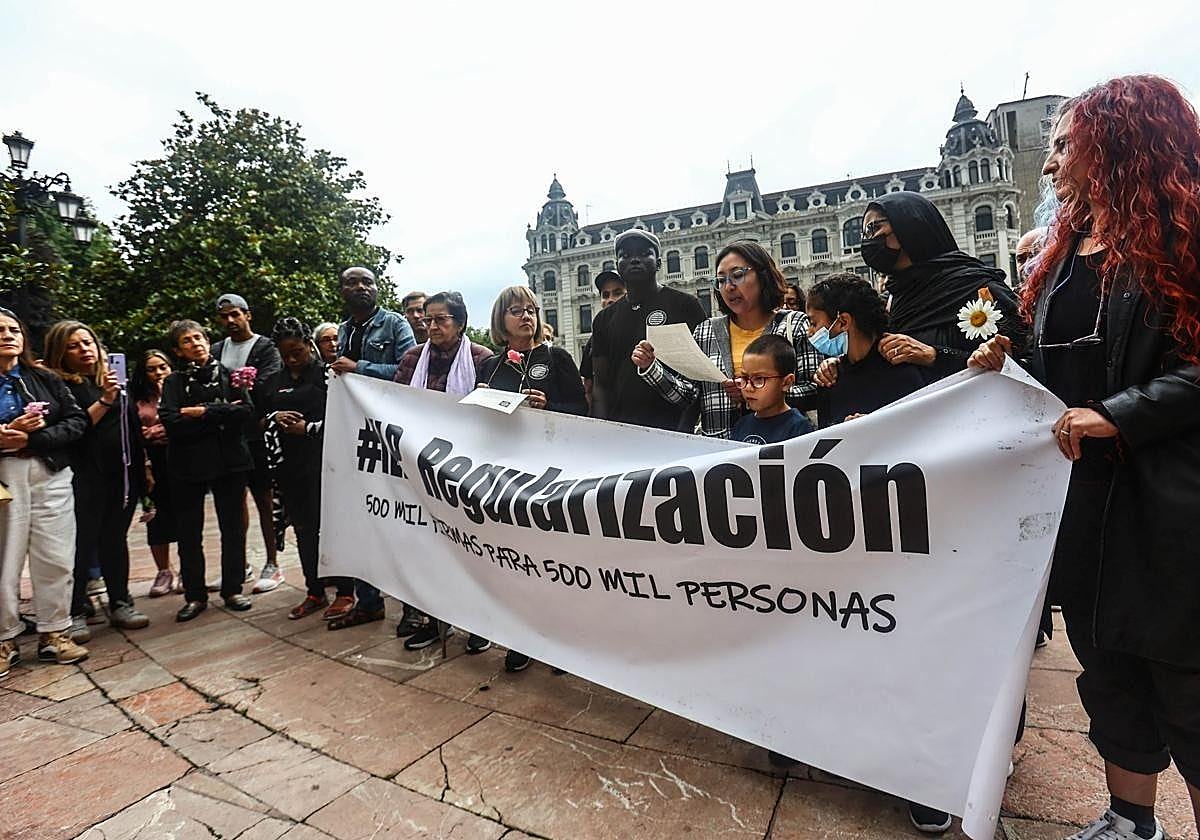Spanish government examines regularisation of migrants
The government is in negotiations with the parliamentary groups over the wording, which will allow for the regularisation of 500,000 people to overcome the shortcomings of the immigration regulations coming into force this week
Spain's central government is negotiating with the parliamentary groups a new regularisation to grant residence and work permits to some 500,000 migrants who had arrived in Spain before 31 December 2024.
The country's executive takes as its basis a popular legislative initiative (IPL), presented on 9 April 2024 and with 600,000 signatures of support, which all the groups in Congress, except Vox, supported in April last year. This IPL has been paralysed in parliament for 13 months and is now back on the table to allow for the regularisation of those whose status remains outside the new immigration regulations (Reglamento de Extranjería) that come into force on Tuesday this week.
The government's new text proposes a "transitional, exceptional and time-limited regime" and sets a date of 31 December 2024 for the arrival of migrants who wish to legalise their situation, although the cutoff date is open to negotiation during the parliamentary process.
Beneficiaries must meet certain conditions, for example, not having a criminal record, providing proof of their stay in Spain or proof of their situation of vulnerability, according to the draft document seen by media sources. SUR asked the relevant ministry for migration and the socialist parliamentary group about the ILP at the start of this week, but a reply has not been forthcoming.
The government's proposal aims to cover the shortcomings of the new immigration regulations. As of 20 May, these open the door to the regularisation of some 300,000 migrants to Spain although, according to some support groups, it leaves the situation of rejected asylum seekers up in the air.
NGOs criticised these regulations as being detrimental to asylum seekers because, if their applications are rejected, they will have to spend between six months and two years in an irregular situation before they can be regularised. Also young immigrants in and out of care see their conditions for regularisation become tightened.
The Reglamento de Extranjería was approved by ministers on 19 November, following its proposal by the immigration department, and seeks to adapt the regulations for the current immigration situation, to meet the needs of the labour market and migrants and to address Spain's demographic challenge.
The new regulations set out five types of settlement that migrants can use to apply for regularisation: social, socio-occupational, family, socio-training and second chance, a route aimed at people who have held a residence permit in the last two years but, for some reason, have not renewed it.
They also reduce the length of time required to stay in Spain in order to qualify for 'arraigo' (setting down roots in a given location) from three to two years, make the requirements that must be met more flexible, and allow both employed and self-employed work to be counted from the outset. All initial authorisations will be for one year (except for the family authorisation, which will be for five years) and renewals will be granted for four years.
The document that has come into force this Tuesday "represents a balance between the extension and protection of the rights of migrants and legal rigour and attention to the needs of Spain", said the immigration minister, Elma Sáiz, after its approval by the ministerial council. "It provides legal certainty and simplifies procedures and protects rights, but also offers new possibilities for people who have decided to develop their life project in Spain, for them and their families", she stated.
In the same vein as the NGOs, the ombudsman, Ángel Gabilondo, warned that the new requirements for access to the status of 'arraigo' for applicants for international protection "could lead thousands of minors to irregularity."
In the report 'Niñas y niños extranjeros en España solos o acompañados' (accompanied and unaccompanied foreign minors in Spain), formally submitted to parliament, Gabilondo suggests that migrant minors have to face complex administrative practices that hinder their integration.

